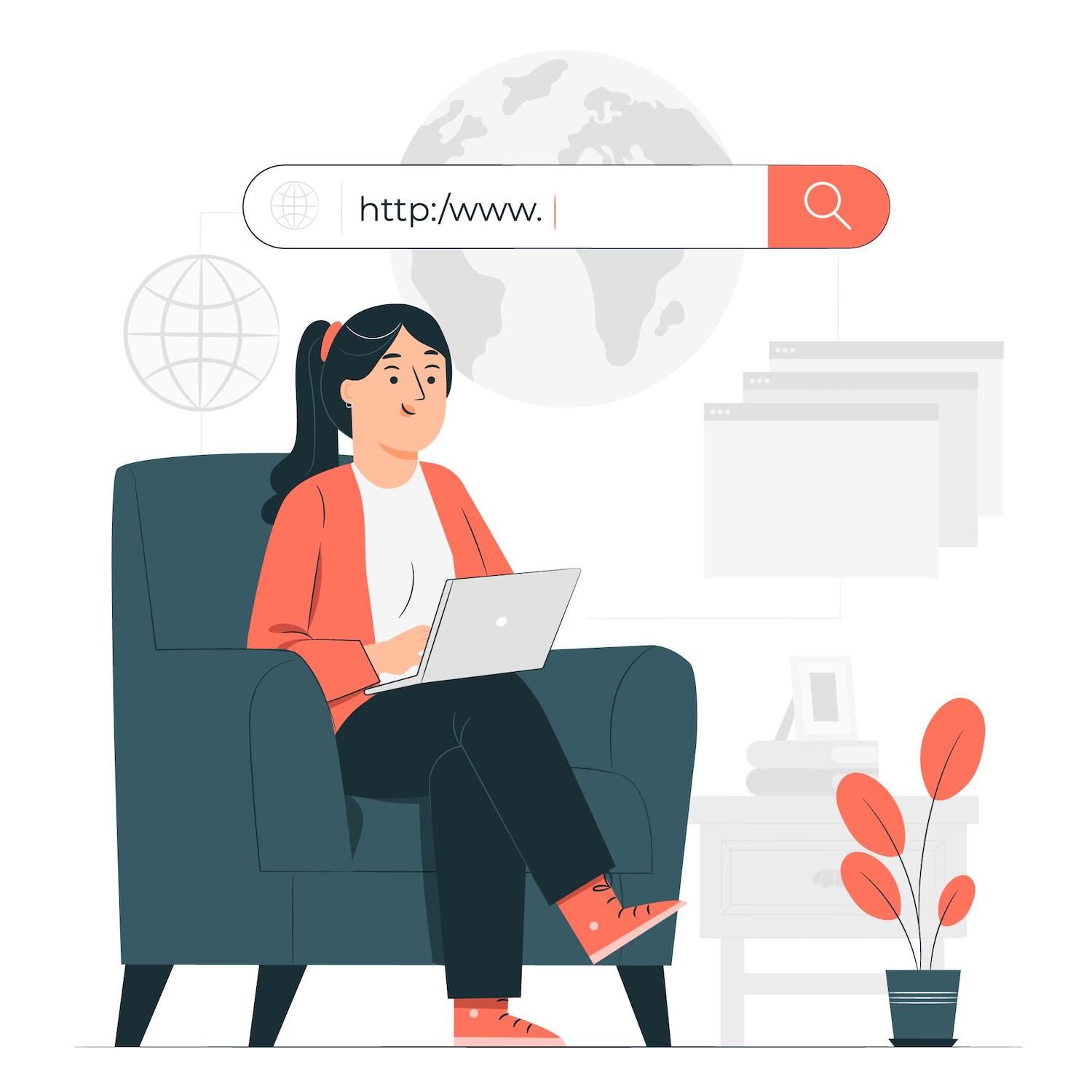What exactly is an Digital Nomad? An entire guide to digital nomads as well as career Choices (2023) |
If you're thinking about making the transition to a digital nomad, you're not alone. A report from MBO Partners found that 17 million Americans have become digital nomads as of 2023. The report also revealed that 80% of digital nomads were very satisfied with their work, while the majority of digital nomads claim to be traveling with children! AND the report found the more than 70 million Americans are keen to be digital nomads and they're also seeing a similar level of interest all over the world.
In this post this article, we'll present the definition of digital nomad, walk through some of the pros and cons of living a nomadic lifestyle, and look into the various careers available to digital nomads. Then we'll give you an overview of what you need to know and some tried-and-true tips for making your dreams of a nomadic life into a realisation.

((toc))
What is a digital nomad?
A digital nomad is someone who travels around the globe and works remotely. Digital nomads benefit from the new possibilities of digital work, and often require only a laptop in order to earn a living. It allows them to travel, using technologies to run a business or work for a company that has an office-based remote policy.
It's unclear who came up with the phrase digital nomad however, it became popularized in the 1997 publication by Tsugio Makimoto, and David Manners, who argued that new technology would allow individuals to go back to a non-stop lifestyle, and work from anywhere. In 2023, there were 17 million Americans with digital nomads.
Many popular destination countries have a love-hate relationship to digital travelers. Digital nomads can have been accused of destroying landscapes and displacing locals. But many countries also see nomads as an opportunity to boost tourism dollars in the country as well as fill labor shortages. The appeal of this was enhanced since the decline of short-term tourism during the pandemic. A growing number of nations are offering "digital nomadic visas" and encouraging nomadic travelers to come and stay.

How do you do you want to be an online nomad?
There are several excellent reasons to think about being an online nomad. Of course, the first is travel! If you've always wanted to see the world and experience diverse cultures, then being digital nomads allows you to do this.
Many digital nomads also take advantage of the cost of living disparities between nations. Making a good income in their country of origin as well as having a lower price of living within their host country/ies is that they are able to enjoy more free cash.
But not everything is rosy for digital nomads. A lot of people underestimate the toll that is required to reside abroad for prolonged durations, being cut away from the home community of friends and family, as well as in an unfamiliar society. It is possible to estimate the cost as well. Although the price of living may be less in the host country, they've got to factor in travel as well as health insurance and sightseeing.

Pros and cons of becoming an online nomad
Pros
- Work from incredible, inspirational places you are awed by.
- Save money in places where the cost of living than in your home country (your savings go further).
- Find new friends across the globe.
- Make the lifestyle you desire and live the life you want.
- There is a chance that you will be able to experience personal growth and motivation that you would never experience at home.
- It is a great possibilities to learn by exposing yourself to new cultures, languages as well as other languages.
- Profit from the time difference (e.g. working later in the day as well as allowing mornings to be free ).
- Earn money by renting your home or apartment (if applicable).

Cons
- Loneliness and isolation as it's difficult to make friends in new locations.
- If you lose the source of income, it could be difficult to locate a replacement. You may not be qualified to work in a host country.
- Moving can be difficult for relationships-many nomads struggle with dating and romance.
- Unexpected expenses can eat out the savings you get when you live in a more affordable area.
- Time zone variations could be a problem, particularly when you're working when your colleagues are sleeping or the reverse is true.
- Legal and Visa issues could cause lots of stress and extra expenses.
- You must ensure that you're compliant with tax laws at home as well as in host countries (some countries expect nomads to be tax payers! ).
- Your career can be restricted by distance.
- If you can't access the internet at a high speed, it may hinder your ability to work.
- There's an environmental impact to travel, and in some instances the impact of nomads on local communities (e.g. housing markets ).

Careers for digital nomads
There are honestly so many opportunities for digital nomads to work. The year 2025 will see 32.6 million Americans are expected to work remotely and 16% of businesses are already completely remote. This means the possibilities of digital nomad jobs are going to get better and better. If you work in an office and use a computer or phone to work, there's a good likelihood that the job you are working on can be done remotely.
Below are some suggestions:
- Community Manager: A community manager is one who manages an online community. this is a great job that allows remote work. Community platforms on the internet allow you to easily manage an active community. If you're employed by an organization or brand, or you manage your own private community, it's an awesome career for nomads!

- Freelance Writing Writers who are freelance write for newspapers and magazines. However, they can also ghostwrite books for CEOs or write blogs for brands. Since writing is usually accomplished on their own this is a fantastic work for an online nomad.
- Graphic Design Graphic artists are able to create some of the most famous brands using a laptop, making it a great digital nomad career.
- Online Tutoring or Teaching E-learning's rapid growth means that online tutoring and teaching is possible for those who are digital nomads, regardless of whether teaching at an online college or launching your own online class.

- Digital Marketing: Whether you're building Facebook ads or doing SEO, marketing in the digital age will be... digital. This makes it a great career for digital nomads.
- Software Development: Software engineers create software and tools, either on their own or with a company. It's all done on the internet, so it's a great choice for remote work.
- Web Design: Creating websites is an excellent profession for digital nomads.
- Virtual Assistants are usually able to assist leaders with administrative tasks, answering emails, posting on social networks, scheduling appointments, and so on. It's a perfect role for those who work from home.
- Remote Customer Service: When businesses provide customer support online or by phone, it's not likely to matter where the representative lives. This could be an excellent career for an online wanderer.

- Telemedicine: Not every health services can be delivered remotely, but a surprising number of them can. From counseling and psychiatry specialist consults to nursing interviews the number of remote healthcare positions is on the rise.
- Market Researcher: When you're doing market research on behalf of a company, things like surveys, it could probably be remote.
- Content Creator The days of content creators are over, with people making podcasts, social media posts, YouTube videos, and many more. If you earn a living from content-whether working as a part of a business or you-you're probably able to do it remotely.
- Consultant: Consulting falls into one of the biggest buckets, but it's basically about establishing your own business of service and advising and working for businesses on a part-time basis. It's a great career for remote work.
- Professional Services Bookkeepers lawyers, accountants and HR. There are many professional services that can lend themselves well to digital nomadic life.
- Service-based businesses: The final point is that service businesses can be great for digital nomads. Scientists, architects, conservation engineers, scientists, etc. are all suitable to work remotely, based the work you do.

What is the best way to become a digital nomad
- Find a job or earn money that lets you travel: The first digital nomad movement was mostly concentrated on entrepreneurs who were digital. Tim Ferriss' famous book-The 4-Hour Workweek-stressed using technologies to grow flexible businesses and use the freedom to travel (if you want). The rise of remote work has meant the possibility of becoming a digital nomad can be possible with a 9-to-5 job.
- Do the planning: it's getting easier all the time however, being a digital nomad is still complicated. It's important to consider finding accommodation in another country, managing visas, filing taxes, logging into your bank from abroad, as well as a myriad of other issues (we've added a checklist below). Be prepared-people make this mistake every day. But do get started on your planning.
- Take a trial drive Before you commit to becoming a full-time nomad, try a test drive. Spend a few weeks somewhere during a vacation to see if it's actually possible to would enjoy. Although the idea of becoming an online nomad may sound beautiful, many find it difficult to accept they're not suitable for it.
- Choose your travel style: Do you prefer to plan the rest of your year scheduled out? Or do you want to travel month-to-month, where the wind will take you? There's no wrong answer. Making a plan in advance can give you the advantage of having a wider selection of accommodations choose from and cheaper flights However, it also limits the possibility of being spontaneous. Planning without a schedule means having the freedom to be spontaneous, however some of your options will be restricted by the flight options as well as the accommodations accessible. Many nomads work better by keeping a basic schedule, and planning is part of the enjoyment!
- Take a bag and leave! becoming a digital nomad seems overwhelming, at the end of the day you're just creating a plan and preparing to live your the same thing in another location. Beware of the temptation to pack too much (you'll appreciate the fact that you don't take on too much). Begin your journey!

Digital nomad checklist
There are plenty of aspects to consider when you decide to become digital nomads. Below are a few advice we've received from others who've tried it:
- Make sure you have the right software and tech Make sure you have your laptop with relevant tech you need to do your job, and don't forget electric adapters to the countries you'll travel to. Be aware that you are able to purchase or lease technical equipment in most countries too. If, for instance, you prefer working with a second screen this could be something you can easily find on arrival.
- Backups to 2-factor IDs: Since the last five years, 2-factor identifications have become necessary to log into everything. And if you normally get texts on your smartphone-but there's no 2-factor identification, life gets much more difficult. Create backups of every important login. For anything Google-related You can make use of the Google authenticator application. If not, consider the ways you'll log in to your tax accounts, bank accounts, software, etc.
- Calculate taxes: Plan on how you will pay and pay taxes from overseas (if relevant).
- Make sure you have a current passport. Take your passport along with the other documents you'll require. Keep in mind that some countries will refuse to grant a visa if you have a passport that expires after 6 months, so be sure to have plenty of space in your calendar.
- Get medical insurance: Things happen. You should be covered. Insurance plans you have may provide some coverage However, the majority of digital nomads need to purchase an additional medical travel insurance.
- Check your visa requirements: If you are from the US You can travel anywhere in the world without needing to apply for a visa, unless you're staying for a long time. If you're planning a long-stay, you might have to get the proper visa at the consulate or embassy before departure. If this is the case you should start earlier to allow your self plenty of time.
- Verify the requirements for work: Are you allowed to work in your nomad country? Do they want to tax your income? Each nation is governed by its own regulations which can be tricky to navigate. Check with digital nomad blogs and forums as well as official government websites. Some may be okay with your earning money provided it's within the country. If you're employed by an organization that has office locations in different countries it could be possible get a job in conjunction with them.
- Find train or plane tickets and accommodation Sites such as Airbnb could be useful for this. However, there are new platforms available all the time. For example, Berlin startup Habyt promises regular rentals. Applications like Hopper allow you to track flights as well as give tips on when to book at the lowest cost.

Strategies for becoming an internet nomad
- Stay a while: Jumping between places each day can make it hard to remain productive-not to mention takes a toll on your finances. Nomads who have experience know it's worth staying in one area for several weeks, or even for months in order to create a schedule and save cash. As an example, Airbnb has discounts for monthly bookings that can put the cost of nomad living in line with or cheaper than the rent of any city in the U.S.
- Choose a timetable that is effective: It may be hard to be productive when you travel. Make sure to develop an effective work plan that is suitable for you.
- Stay aware of the cultural difference: Nomads face many unexpected surprises when trying to carry out the way they'd do in their home countries. For example, many places won't let you set up your laptop in the cafe where you can work (or if they do they don't have WiFi). You'll need to adapt your lifestyle depending on the society you're living within.

- Find community Find community: Ask the digital nomads about their experiences and they'll share with you loneliness. Find ways to plug into communities where ever you go regardless of whether it's an informal gathering of nomads in your area or an online community. (Staying within a single location longer will help to make stronger connections ).
- Be cautious: Prior to agreeing to a 3-year trip around the world, start with a small amount. Try a few weeks or even a whole month of work at a different place. You might find that you do not like it perhaps, or it could be harder to work remotely as you imagine. Make it easier for yourself to get used to.

Get going!
This article has hopefully given you the confidence to embark on your own adventure as a digital nomad! While it can be daunting but the increasing popularity of being a digital nomad, and the experiences from thousands of people who are enjoying the adventure suggest it's worth a try!
If you're in search of a successful venture for digital nomads come build on Mighty! You can launch a member-led enterprise that consists of classes, community, coaching as well as live events and premium groups.
It's a great spot to create a successful company that is flexible enough to take your business with you! You can try it without cost for 14 days - no credit card required.
Now Read: How you can Take Your Business Online in 3 Easy Steps
